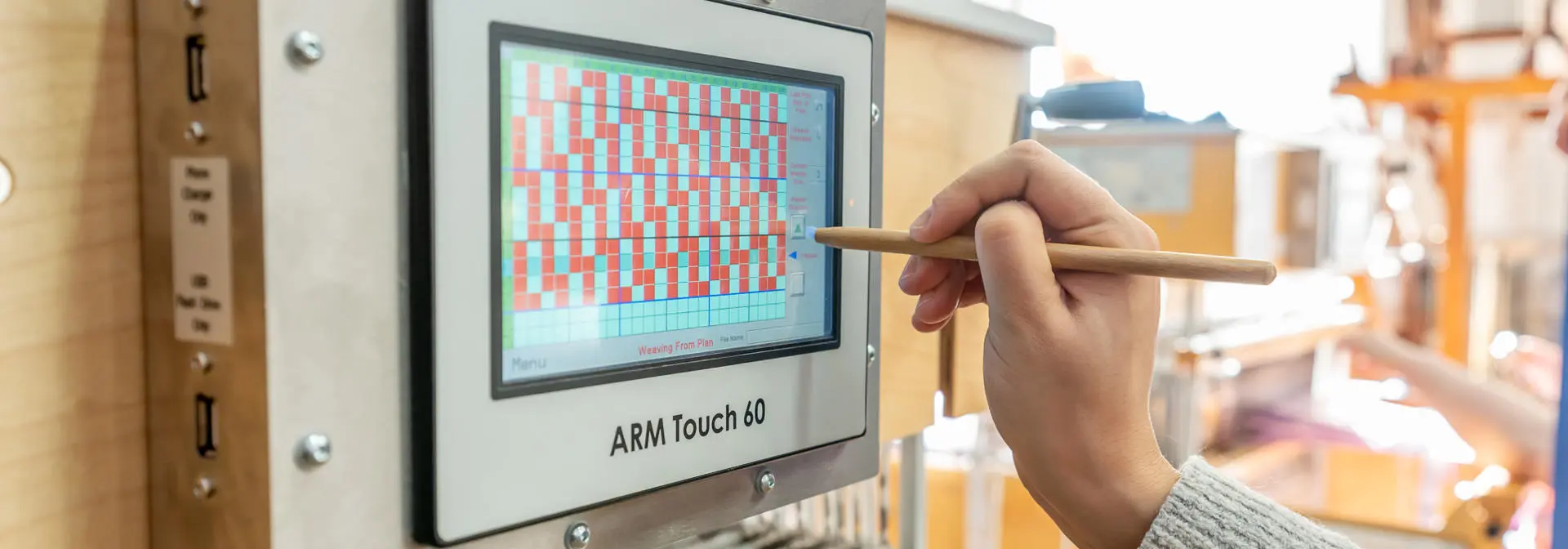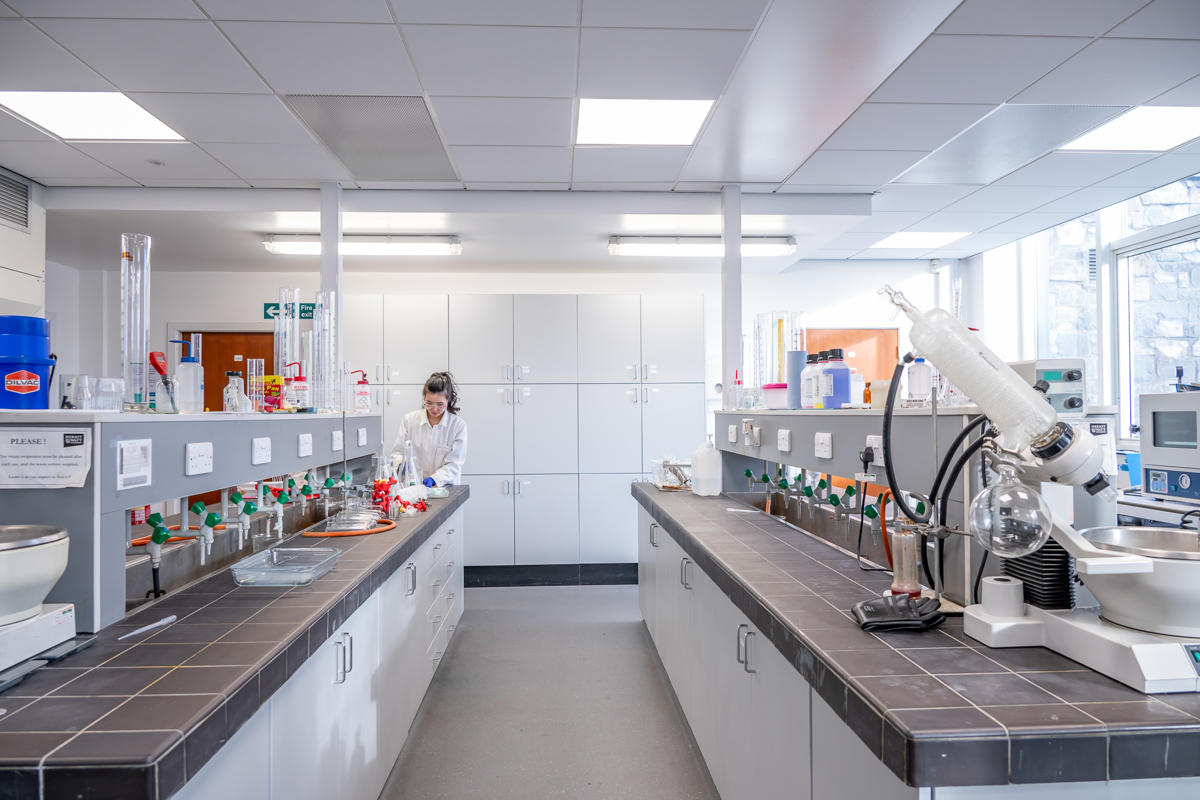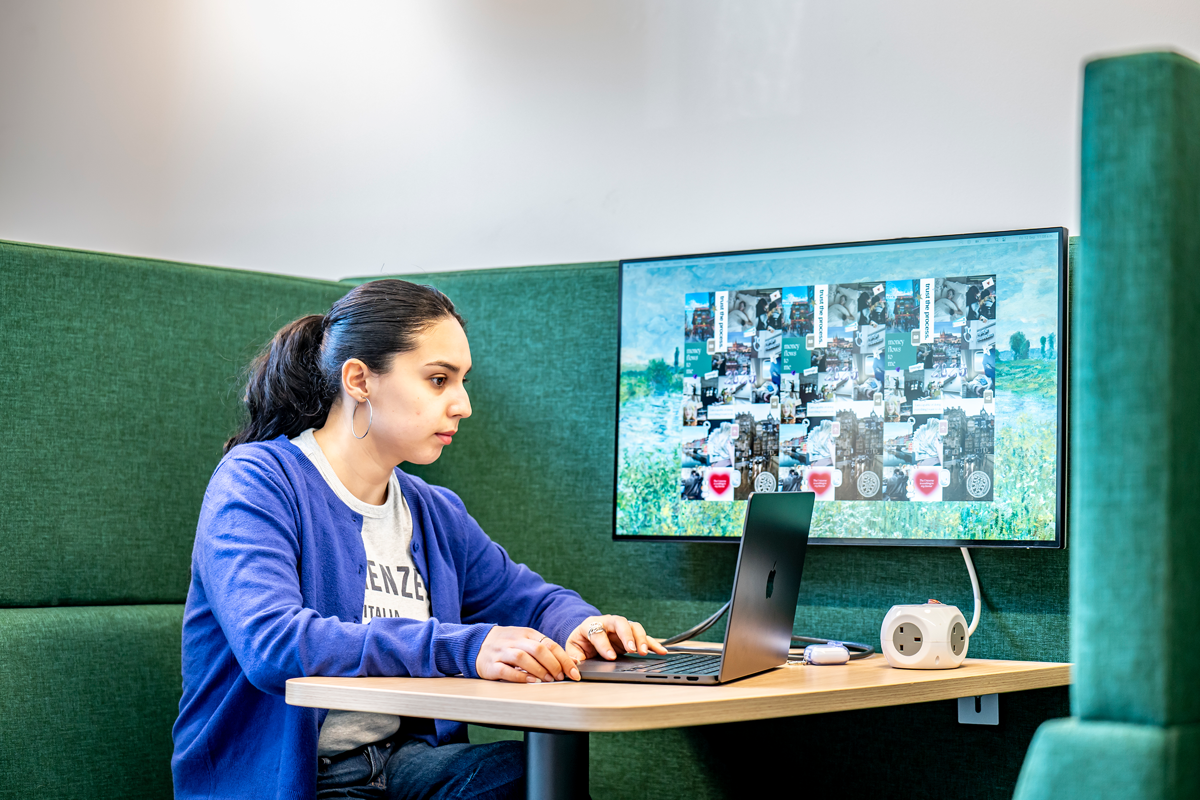Design research into preferred futures

Design-led interdisciplinary collaboration, employed to transition towards a sustainable future, is central to the School of Textiles and Design research.
By working within Heriot-Watt’s Global Research Institutes in Health Technologies, NetZero, Robotics, and Earth and Marine Sciences, academics and students at the School of Textiles and Design meet contemporary challenges across culture, technology and society with innovation focused enquiry into preferred futures.
The school supports theoretical enquiry, social science, practice and lab-based methodologies, and advancing knowledge across multiple domains - including material innovation and textile futures, sustainable and circular design practices, consumer behaviour, health, wellbeing and inclusive design, heritage of making practices, media and communication and computational, and ai-driven design.
Our research mission champions impact as much as rigour and believes in the crucial role that design must play in meeting sustainability imperatives, addressing technological challenges and promoting social changes.
Spanning both academic inquiry and real-world application, our research reinforces the discipline’s capacity to drive knowledge, support innovation, shape policy, and thereby positively impact industry and society.
Working on a research project at the school has enabled me to get my first job in research and development. Although, I also feel that when looking at job specifications, studying at the School of Textiles and Design has given me the skills needed to get a job in the industry I want. They are also very encouraging in further studies and I am currently getting amazing support to apply for Doctorate

